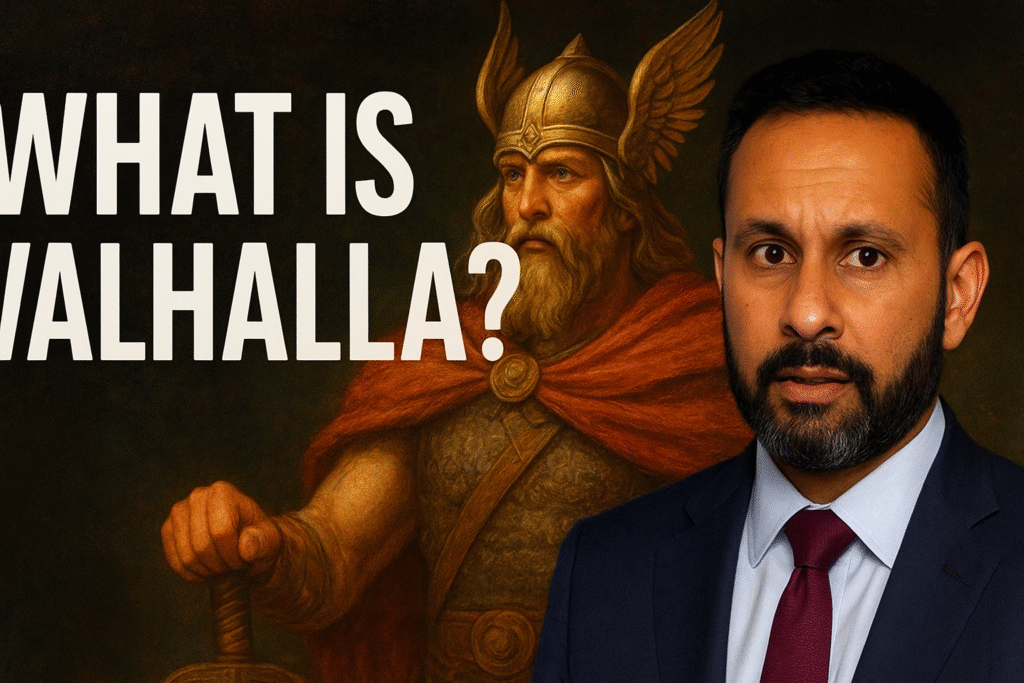When people hear the word Valhalla, images of Viking warriors, epic battles, and the afterlife promised by Norse mythology come to mind. But today, “Valhalla” doesn’t only live in the past — it appears in modern conversations, media, and even in political debates. In this article, we’ll explore what is Valhalla, its original meaning, and how names like Kash Patel and Brian Kilmeade have brought the word into contemporary discussions. Along the way, we’ll answer pressing questions about Kash Patel religion, rumors about him being connected to the FBI, and the role of media personalities like Kilmeade.
What is Valhalla?
Valhalla is a term from Norse mythology that means “hall of the slain.” According to ancient Viking belief, warriors who died heroically in battle were chosen by Odin, the chief god, to enter Valhalla. Here, they would spend eternity feasting, drinking, and preparing for the ultimate final battle: Ragnarök.
But have you ever wondered why this ancient concept still fascinates us today? Perhaps it’s because Valhalla represents courage, loyalty, and eternal reward. In modern culture, the term is often used as a metaphor for success, legacy, or even political struggles.
Kash Patel and Valhalla: A Surprising Connection
You may have seen searches like “Kash Patel Valhalla” trending online. But what does a modern American lawyer and political figure have to do with a mythical Viking afterlife?
The connection lies in metaphor and media. Supporters and critics alike sometimes use “Valhalla” when describing the fierce battles Patel has faced in the political and legal arenas. It symbolizes both the struggles and the sense of victory or defeat in today’s ideological wars.
Who is Kash Patel?
Kash Patel, often simply referred to as Patel, is an American attorney and former government official who became a recognizable figure during the Trump administration. His roles included working as a senior adviser in national security and intelligence. Some online searches even raise the phrase “FBI director Patel”—but to clarify, Kash Patel has never served as FBI Director. The speculation reflects how closely people associate him with intelligence and security debates.
What Religion is Kash Patel?
Another commonly searched question is: “Kash Patel religion” or “what religion is Kash Patel?”
Kash Patel was born to Indian immigrant parents and raised in the United States. His family background is rooted in Hinduism, although like many public figures, he keeps his personal religious practices relatively private. This curiosity highlights how people want to understand not just the politics but also the values and traditions shaping influential individuals.
Brian Kilmeade and the Valhalla Narrative
The connection between Brian Kilmeade (co-host of Fox & Friends on Fox News) and the term Valhalla may surprise some readers. Kilmeade, often referred to simply as Kilmeade, has interviewed and discussed figures like Kash Patel, diving into controversial political and cultural topics.
For some audiences, Kilmeade’s commentary can feel like a battlefield of ideas — a modern media “Valhalla” where clashes of opinion take place daily. His presence keeps the name Patel alive in mainstream conversations, linking debates about intelligence, religion, and politics with the powerful imagery of Valhalla.
Interactive Questions for You
👉 Have you ever thought of Valhalla as more than just a myth?
For many, it symbolizes personal victory — whether in business, politics, or life challenges.
👉 Do you think media figures like Brian Kilmeade shape how we perceive politicians like Kash Patel?
Your answer might depend on how much influence you believe media personalities have over public opinion.
👉 Why do you think people are so curious about Kash Patel’s religion?
Perhaps religion is seen as a key to understanding values, motives, or cultural roots.
Why This Matters Today
The discussion of Valhalla alongside modern figures like Kash Patel and Brian Kilmeade shows how ancient ideas still shape our language and imagination. Whether used metaphorically or directly, Valhalla continues to represent ideals of bravery, battle, and destiny.
And when people ask: “Kash Patel Valhalla” or “FBI director Patel”, it’s not just about mythology or job titles. It’s about searching for meaning in the struggles and legacies of our time.
Final Thoughts
Valhalla may have started as a mythical Viking hall, but today it’s a symbol that resonates far beyond ancient Scandinavia. Figures like Kash Patel and commentators like Brian Kilmeade keep the metaphor alive in political and cultural conversations.
So the next time you hear the word Valhalla, ask yourself: Is this just a myth — or is it a mirror of our own battles and victories?
✅ Your Turn:
What does Valhalla mean to you — a myth, a metaphor, or a modern battlefield? Share your thoughts in the comments below!
